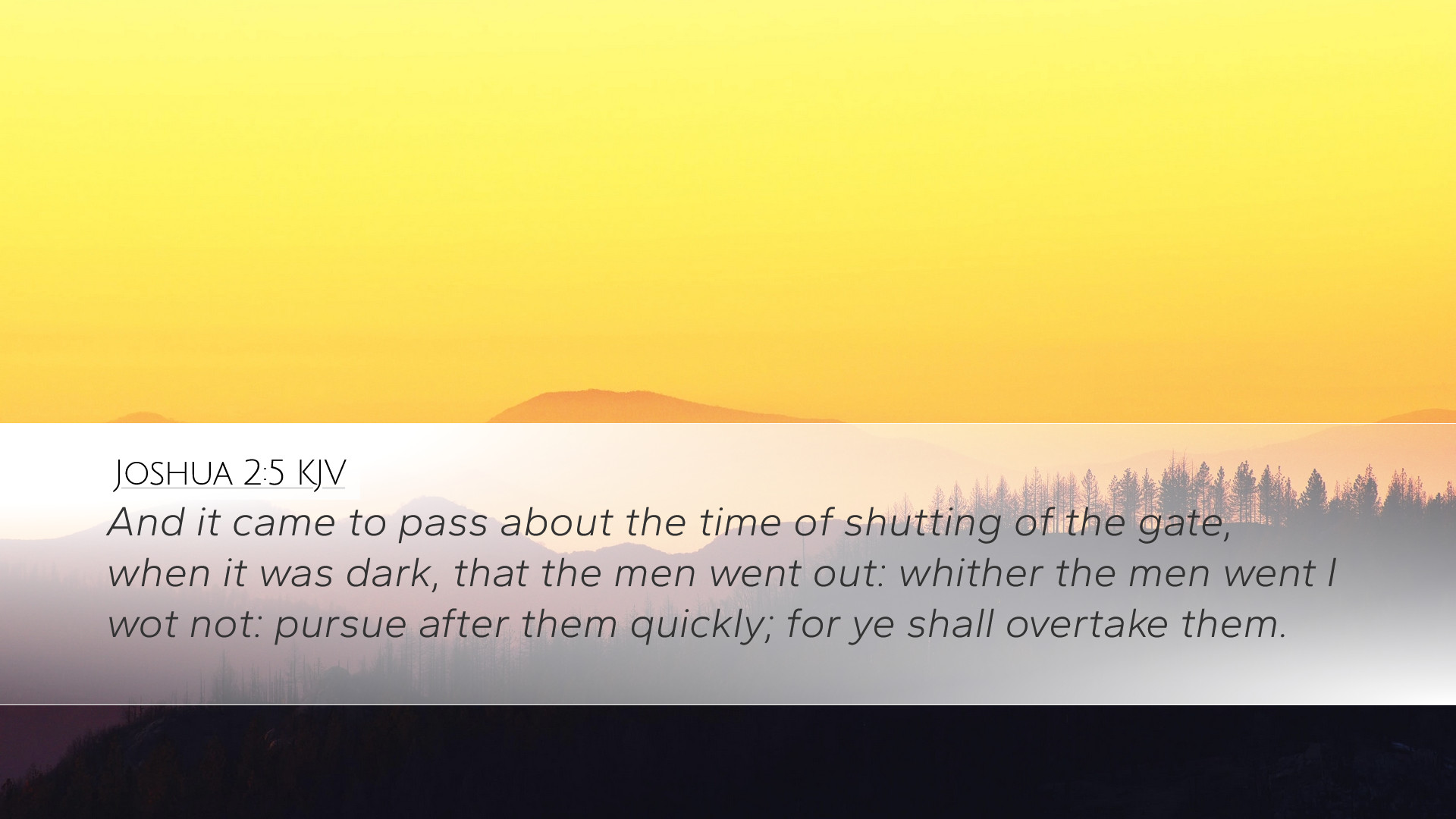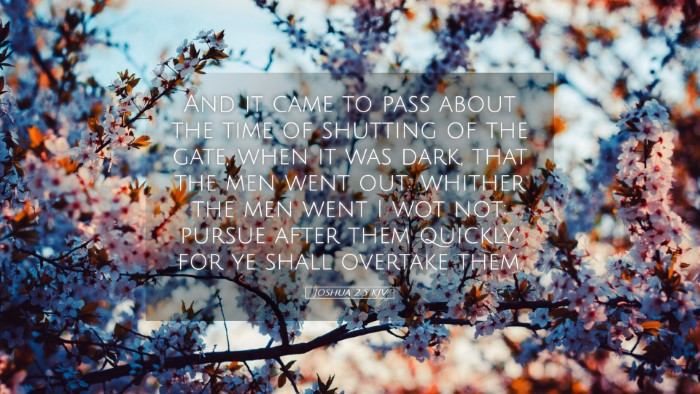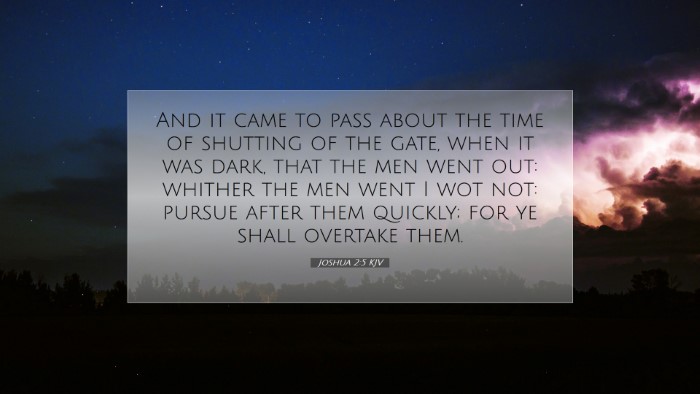Old Testament
Genesis Exodus Leviticus Numbers Deuteronomy Joshua Judges Ruth 1 Samuel 2 Samuel 1 Kings 2 Kings 1 Chronicles 2 Chronicles Ezra Nehemiah Esther Job Psalms Proverbs Ecclesiastes Song of Solomon Isaiah Jeremiah Lamentations Ezekiel Daniel Hosea Joel Amos Obadiah Jonah Micah Nahum Habakkuk Zephaniah Haggai Zechariah MalachiJoshua 2:5
Joshua 2:5 KJV
And it came to pass about the time of shutting of the gate, when it was dark, that the men went out: whither the men went I wot not: pursue after them quickly; for ye shall overtake them.
Joshua 2:5 Bible Commentary
Commentary on Joshua 2:5
Joshua 2:5 states: "And if the men pursue you, hide yourself in the mountains for three days, and there shall not be a man come down after you; and afterward may ye go your way." This passage is a critical moment in the narrative of Israel's entry into the Promised Land, as it involves a key element of espionage, faith, and divine providence.
Contextual Background
The story takes place as the Israelites, under the leadership of Joshua, prepare to enter Canaan. The sending of spies into Jericho is a strategic move, indicative of the military tactics employed in the conquest of the land. By exploring the city, these spies gathered necessary intelligence, which would later aid in the Israelite invasion.
Key Themes and Insights
-
Faith in Adversity
Matthew Henry highlights the courage of Rahab, a Canaanite woman who played a pivotal role in assisting the spies. Her faith in Israel's God stands in stark contrast to the fear and unbelief of her own people.
-
Divine Sovereignty
Albert Barnes emphasizes that God’s providential hand is evident in the protection afforded to the spies. Rahab’s actions demonstrate how God can use unexpected people and circumstances to fulfill His divine plans.
-
The Role of Women in Salvation History
Adam Clarke points out the significance of Rahab’s role in the narrative, noting her inclusion in the lineage of Christ as portrayed in the genealogy of Matthew 1. This underscores the inclusive nature of God’s redemption plan.
Theological Reflections
The verse invites profound theological reflection on the nature of faith and obedience amidst danger. The advice given to the spies—to flee to the mountains and conceal themselves—symbolizes the trust one must place in God during perilous times. The recommendation of a three-day concealment could symbolize a period of testing and waiting on the Lord.
Application for Believers
For contemporary believers, this passage challenges us to consider how we respond to situations of fear or uncertainty. Are we willing to act in faith, confident that God will direct our paths? Just as the spies relied on Rahab, we are called to lean on the community of believers for support and guidance.
Insights from Matthew Henry
Matthew Henry elucidates the significance of 'hiding' as a metaphor for spiritual refuge. Believers are reminded that in times of trouble, God provides places of safety whether physically or spiritually. The mountains are described as a classic Biblical symbol of strength and refuge.
Insights from Albert Barnes
Albert Barnes elaborates on the strategy involved in the spies’ actions, connecting it to God’s greater plan for Israel. The advice to "go your way" after the third day indicates a divine timing that belies the pressure of immediate action, urging patience and reliance on God’s timing.
Insights from Adam Clarke
Adam Clarke discusses the historical implications of this event, focusing on Rahab’s faith and her subsequent protection, emphasizing that faith is often rewarded with divine mercy. Rahab's decision to hide the spies exemplifies a profound act of faith that leads to her salvation and that of her family.
Conclusion
Joshua 2:5 not only serves as a historical account but also as a source of spiritual guidance. The wisdom derived from the commentaries presents a multifaceted view of the text, akin to a tapestry woven with themes of faith, protection, and divine orchestration. As pastors, students, theologians, and Bible scholars engage with this verse, there lies a rich opportunity to contemplate how these ancient truths speak to contemporary situations of faith and community.


